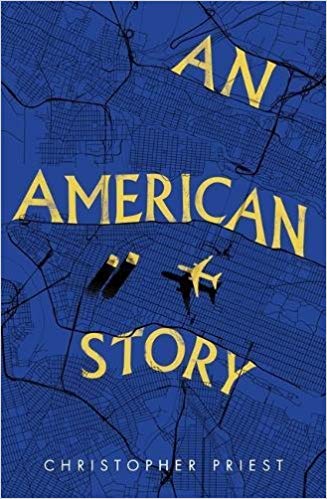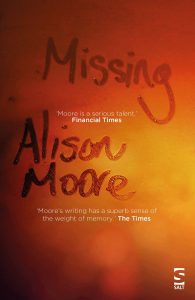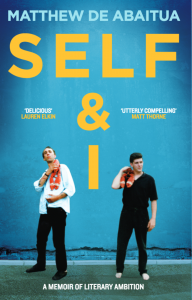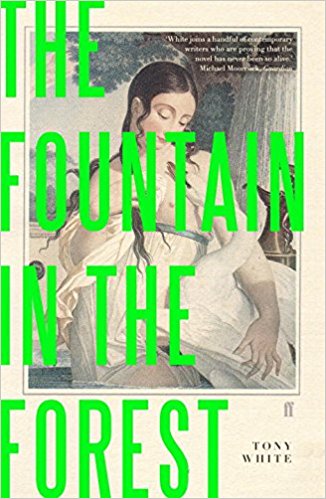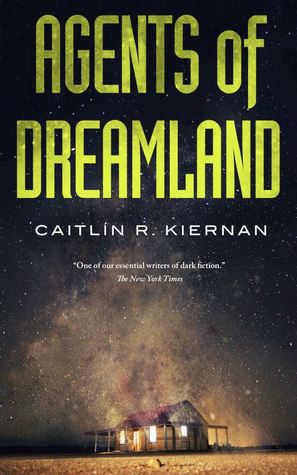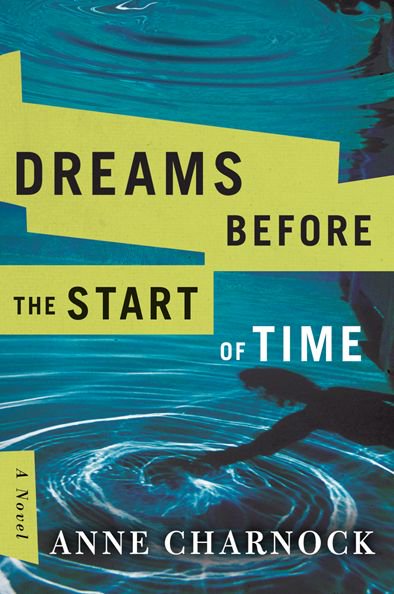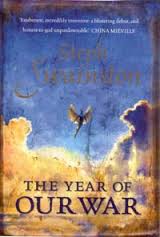It always happens to me: just when I think I’m done with science fiction, I find myself falling in love with it all over again.
This recurrence of enthusiasm is often the by-product of annoyance at the continuing snobbism shown by the literary world towards SF – that radio interview of Zachary Mason’s was a classic case in point – but there’s more to it than that. I look at the deluge of ‘astonishing’ literary debuts and I feel fatigued. Fatigued by so much competent averageness. I find myself thinking that no matter how short of its own ambitions SF falls sometimes, at least it’s trying to do something.
On one of my Fantasticon panels in Copenhagen I found myself talking once more about ‘the conversation’ and how important it was to me when I first became involved with the SF community. Even as I was speaking I realised how much this is still the case. I’m damned if I’ll concede the field, even when the field and I seem to be going about our business from opposite standpoints. At its core, science fiction is a political literature, a literature that engages with the world in a way that seems not just apposite but necessary, especially now. How many more luminous coming of age novels does the world really need?
I returned from Copenhagen to find three insightful, reflective, hopeful posts from fellow Sharkes Megan AM, Jonathan McCalmont and Paul Kincaid, looking back on our project as it unfolded and expressing some possible new directions for its future. It was great to read their thoughts, and the comments on them, not least because they gave me a sense of how much we accomplished in generating conversation, not only around the Clarke Award but around SF in general, which of course was the reason we decided to convene the shadow jury in the first place.
I do my best not to be irritable as a person, but I know I can be irritable intellectually. I get cross easily. I have snap reactions. I demand things to be better without examining my own assumptions and prejudices in sufficient depth. Megan insists that the Sharke did not fatigue her, that she was SFatigued even before we started. If anything, I was the opposite: I went into the Sharke determined that we could change things, that we could identify what was ‘wrong’ with the direction the Clarke seemed to be taking and suggest an alternative. I ended up feeling demoralised, mainly I suspect because of the sheer volume of words and self-motivation necessary to guide the project through to its conclusion, which is fair enough. At the same time though I felt profoundly irritated by much of what I’d read, irritated by a science fiction that seemed on the point of running aground in shallow waters and with no hope of refloating itself. I was, in a very real sense, exhausted.
It is surprising what a couple of weeks’ rest and a temporary change of scene can do to get the heart and mind and brain back into gear. In Copenhagen, I found myself wondering if I’d been playing devil’s advocate against myself, waving a flag for something I didn’t actually believe in, much less want. A science fiction that reads like Jonathan Franzen? Regardless of whether such an outcome might be possible, is it even desirable? I cannot count the number of times I have found myself feeling disappointed – irritated – with mainstream literary works that employ science fictional conceits as an exotic backdrop for more conventional concerns. Such a use hints at closure, at circumscribing an idea, at presenting it in terms that will further enhance an already established concept. Such a use would seem to be the opposite of science fiction.
And yet it would be equally disingenuous to suggest that ‘real’ science fiction is the sole prerogative of works published as genre, and by genre imprints. A derivative genre work – a work that lazily recycles old tropes, a work that uses the trappings of science fiction to perpetuate a retrograde worldview – is as unsatisfying in science fictional terms as a bland mainstream offering such as Karen Thompson Walker’s The Age of Miracles or Peter Heller’s The Dog Stars. On the other hand, we see so-called literary works by writers such as Michel Faber, Nicola Barker, Joanna Kavenna and Dexter Palmer coming at science fiction head on and with a sense of excitement. Works such as these, replete with living ideas, should be considered equally as SF and without the ‘literary’ tag clipped on as some sort of disclaimer. If I have come to any conclusions during the time since we hung up our Sharke fins, it is that the ‘literary SF’ label should be dispensed with entirely. It is divisive, ultimately meaningless and unfit for purpose. It seems to me that what distinguishes science fiction from other modes of literature is its vitality, the sense it gives of being in the presence of an idea that is still evolving. If such vitality is present, then whether a work is published by Voyager or by Vintage is of little account. That years of discussion and controversy have been predicated on industry window dressing seems ludicrous and destructive, just a backhand way of perpetrating stereotypes on both sides of the publishing divide. Such arbitrary distinctions hamper the conversation and I intend to avoid them entirely from now on.
The Sharke has changed me in multiple ways, most obviously as a critic and as a reader. Looking back on the self that first conceived the project, I now believe I had become as entrenched within a certain comfort zone as any hardcore space opera fan, accustomed to looking in the same places for what I deemed noteworthy, places that accorded comfortably with my expectations, which in their turn had mostly to do with style. How much more interesting to strip away one’s assumptions and see what happens. To come at things from a different angle. To stop feeling the need to fight a particular corner in terms of what is good and what is best. Personally, I’m still not a fan of The Underground Railroad. To my mind, it is possibly the most ‘commercial’ novel on the Clarke Award shortlist and its bland surface texture renders it ultimately forgettable to me as a reading experience. I find some of the sentence structure, not to mention the use of science fiction in Tricia Sullivan’s Occupy Me to be far more interesting. I have found the abstruse weirdness and raw vitality of Ninefox Gambit hanging around in my mind far longer than, for example, the sensitively rendered but ultimately predictable dystopian role-playing of Clare Morrall’s When the Floods Came. Viewed from this new perspective, the landscape of science fiction looks much more exciting to me than it did even before the Sharke was launched.
Part of the problem I have found not just in reviewing science fiction but in thinking about it too is the pressure to come to a conclusion, to pick a side. The journalistic format one so easily falls into for so much reviewing favours tidy summaries and directed arguments, the need to dismiss or approve a work, style, or line of reasoning quickly and concisely and then move on. To paraphrase W. H. Davies, there seems to be less and less time for literary critics to stop and stare, to present their thoughts as a series of questions rather than striving towards an answer that is ultimately trite. This is a matter I would like to address in future by steering myself towards a different kind of criticism, a criticism that is thoughtfully expansive rather than reductive.
I would also like to address the issue of diversity. I think the best thing I can do here is to refer you back to Gareth Beniston’s Clarke Thoughts post, in which he raises the question of continuing systemic bias within publishing and its inevitable knock-on effect on literary awards, including the Clarke. Gareth’s guest essay was one of the Sharke’s most commented-upon posts – a positive development indeed in that it shows how people are finally becoming engaged with this discussion, negative in that no constructive conclusions were reached, in spite of a general agreement that ‘something must be done’.
Our current situation is a disaster. Only last week another article was published, reporting the findings of a recent survey: that the British publishing industry remains 90% white. It is imperative that this state of affairs is made to change, not just on account of those talented individuals whose pathway into the creative industries is effectively being blocked, but especially because of what it says about where we are as a society. British cultural institutions are atrophying under the weight of reaction. British political culture is more toxic than it was in the days of Enoch Powell. We have somehow created a climate where thousands of people think Jacob Rees Mogg would be a reasonable choice to be our next prime minister, for fuck’s sake. We are a dead country walking. This is urgent, and it is urgent now. After a considerable amount of post-Sharke soul searching, I have come to the conclusion that positive action is more important than obeisance to a brand of objectivity that is specious in any case. At the very least, the Clarke Award should begin admitting entry to works not published in the UK. The current rules have meant that some of the most interesting and important SF by minority and marginalised writers has been ineligible for the Clarke because it happens to have been published in the USA. An award for best science fiction novel that does not take account of the work published by Aqueduct Press, just for example, is setting itself up to be parochial and restrictive. Most works by established writers are published simultaneously on both sides of the Atlantic in any case – with the result that the only works being blocked are precisely those works that we need to see more of.
We also urgently need our Clarke jurors to be drawn from a larger, more diverse pool. And as for Niall Harrison’s suggestion in the comments on Gareth’s piece that we conduct a one-year experiment in which only novels by black and ethnic minority writers would be eligible? Why on Earth not? Such an experiment would, as Niall suggests, be bound to draw attention to publishing disparities. It would also give rise to one hell of an interesting discussion. We desperately need change. At some point, someone needs to take the lead in promoting change. What better institution than the Clarke?
Much of what I’m saying here is simply a longer reflection on that Mackenzie Wark essay I mentioned in an earlier post, a more sustained amen. I am so horrified by the current political impasse that I cannot, at the present moment, see how the bourgeois novel, as Wark described it, can be anything other than an obsolescence, an inappropriate reassurance, if not a defence than a passive reflection of the status quo.
I think I can also safely say that I’m coming out of my Sharke-fatigue. I find myself feeling compelled to read science fiction again. For better or worse, it seems I’m stuck with it. I’m going in.
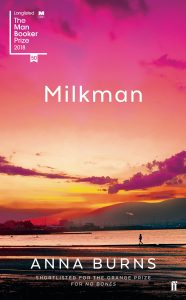 Last night was Booker night. We watched the highly enjoyable BBC Four documentary celebrating fifty years of the Booker before segueing more or less immediately to the announcement of the 2018 prize itself. When Anna Burns’s name was read out for Milkman, I found myself overcome with emotion in a way that has not happened to me during the thirty-five years I have taken an interest in the prize. I started reading Milkman at the end of last week. When people asked me what I thought of it, I had replied ‘I think it’s brilliant, but there’s no way the judges are going to let it win – it’s too experimental’. Rarely have I been over-the-moon happier to be proven wrong.
Last night was Booker night. We watched the highly enjoyable BBC Four documentary celebrating fifty years of the Booker before segueing more or less immediately to the announcement of the 2018 prize itself. When Anna Burns’s name was read out for Milkman, I found myself overcome with emotion in a way that has not happened to me during the thirty-five years I have taken an interest in the prize. I started reading Milkman at the end of last week. When people asked me what I thought of it, I had replied ‘I think it’s brilliant, but there’s no way the judges are going to let it win – it’s too experimental’. Rarely have I been over-the-moon happier to be proven wrong.